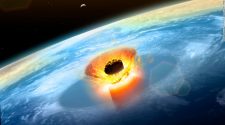Astronaut Edwin E. “Buzz” Aldrin, Jr., Lunar Module pilot of the first lunar landing mission, beside the deployed US flag during an Apollo 11 extravehicular activity on the lunar surface. The Lunar Module is on the left, and the astronauts’ footprints are clearly visible in the soil of the moon. Astronaut Neil A. Armstrong, mission commander, took this picture with a 70mm Hasselblad lunar surface camera. Photo courtesy of NASA
Space
As we celebrate the 50th anniversary of the Apollo 11 moon landing, BU scientists contemplate what’s next
On July 20, 1969, 50 years ago this week, an estimated 600 million people around the world tuned in to see an American astronaut become the first human to land on the moon. The commander of the Apollo 11 mission, Neil Armstrong, and fellow crew members Buzz Aldrin and Michael Collins had traveled 240,000 miles in 76 hours to achieve what had once been considered the stuff of science fiction. Upon taking his first steps on the lunar surface, Armstrong uttered one of the most iconic lines in history: “That’s one small step for man, one giant leap for mankind.”
This week, as the world celebrates the anniversary of that stunning achievement, BU Today reached out to a number of BU astronomers and research scientists and asked each to ponder two questions about the future: Will there ever be an event in space that rivals man’s landing on the moon? and, What do you think the next big discovery in space will be? Their answers offer a tantalizing vision of what may lie ahead.
Philip Muirhead
College of Arts & Sciences assistant professor of astronomy
BU Today: Will there ever be an event in space that rivals man’s landing on the moon?
Muirhead: Definitely. We may not have such an iconic image as a person standing on the moon, but there will absolutely be important events. We tend to forget all of the equally important events that happened prior to Apollo 11—Galileo’s first use of the telescope comes to mind—but we don’t have an iconic image of that moment. NASA’s new Artemis project may well produce iconic moments that rival Apollo 11.
What do you think the next big discovery in space will be?
Space is such a big place, it’s hard to guess. Currently, there is a lot of excitement and anticipation about detecting life on other worlds. Every year we make new leaps in our understanding of planets orbiting other stars and planets within our solar system. It can feel like we are right on the edge of finding evidence for life elsewhere in the universe. I would predict two potential discoveries: evidence for life on planets orbiting other stars and evidence for life on other planets or moons in our own solar system. Over the next 25 years, we will be building the most advanced telescopes and spacecraft to study the potential for life on other worlds. Perhaps they won’t turn up anything, but I like to be optimistic.
Jennifer Gruber (ENG’99)
Exploration Mission Integration lead, Mission Analysis and Integrated Assessments Team, NASA Johnson Space Center
Will there ever be an event in space that rivals man’s landing on the moon?
Absolutely. The Artemis program is already going to be an order of magnitude more advanced than Apollo—and not just technologically. This time, as we travel to another celestial body, in peace, for all humankind, we will actually be including more of humankind. International partnership is part of this program. Space exploration will continue to serve as an example of what humanity can accomplish through peaceful cooperation. At this point, momentum is on our side, and the first human mission to Mars will happen in my lifetime.
What do you think the next big discovery in space will be?
With my background in human spaceflight and mission operations, I’m particularly interested in operational and technological advancements that will enable us to begin to explore and settle Mars, with the intent of going further. In this field, the Artemis program will facilitate development of new mission operations through exploration and habitation of the lunar south pole. I’m also excited about the development of dramatic advancements in propulsion technology that will be required to enable travel to Mars.
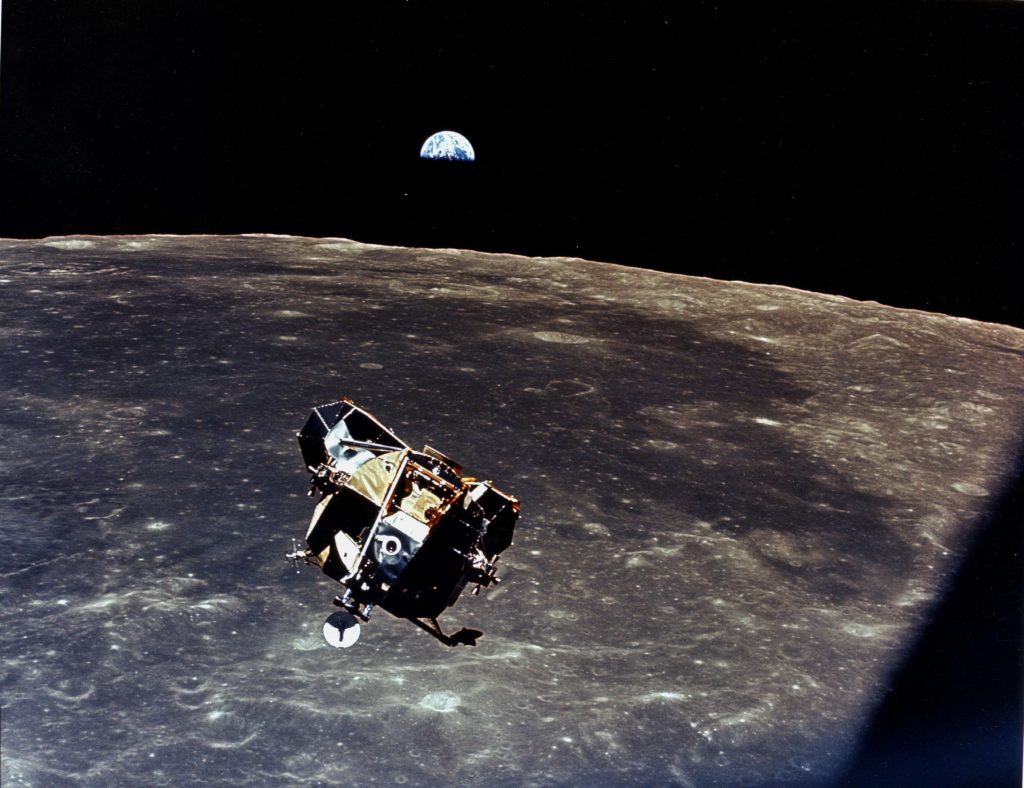
Joshua Semeter (GRS’97)
College of Engineering professor of electrical and computer engineering, associate director, BU Center for Space Physics
Will there ever be an event in space that rivals man’s landing on the moon?
The most obvious rival to Apollo 11 would be landing a human on Mars. But let’s instead focus on extraterrestrial life, an issue that is arguably more profound than planetary vacations. Turning to our own planet, we now have evidence that life could have emerged in complete darkness using just the nutrients and warmth from hydrothermal vents deep in our oceans, thus calling into question the assumption that sunlight is a necessary ingredient for life. We also have evidence that similar environments exist elsewhere in our own solar system. NASA’s Cassini spacecraft discovered geysers erupting on Saturn’s icy moon Enceladus, revealing the existence of a liquid water ocean beneath the surface. Scientists believe that the heat source driving these eruptions arises from the same mechanisms driving hydrothermal vents on Earth. Plans are in the works for a follow-on mission to Enceladus to bore through to its internal ocean and search for life. The discovery of even microbial life elsewhere in our solar system would profoundly change our understanding of our own origins and our place in the universe.
What do you think the next big discovery in space will be?
Earth. What I mean is this: we humans are facing existential questions about the fate and sustainability of our habitable environment, including our collective role in modifying that environment, and what that means for our children and our species as a whole. At the same time, we are rapidly developing experimental capabilities that will allow us to peer into planetary systems elsewhere in the universe that may support life. These dual frontiers—in Earth science and astrobiology—will rapidly converge as we seek out the fundamental laws governing the emergence of life in our universe. Discovering the rules of life and how they apply here and elsewhere in the cosmos could excite the popular imagination in a way that transcends politics, perhaps catalyzing the development of global policies that our species desperately needs to survive.
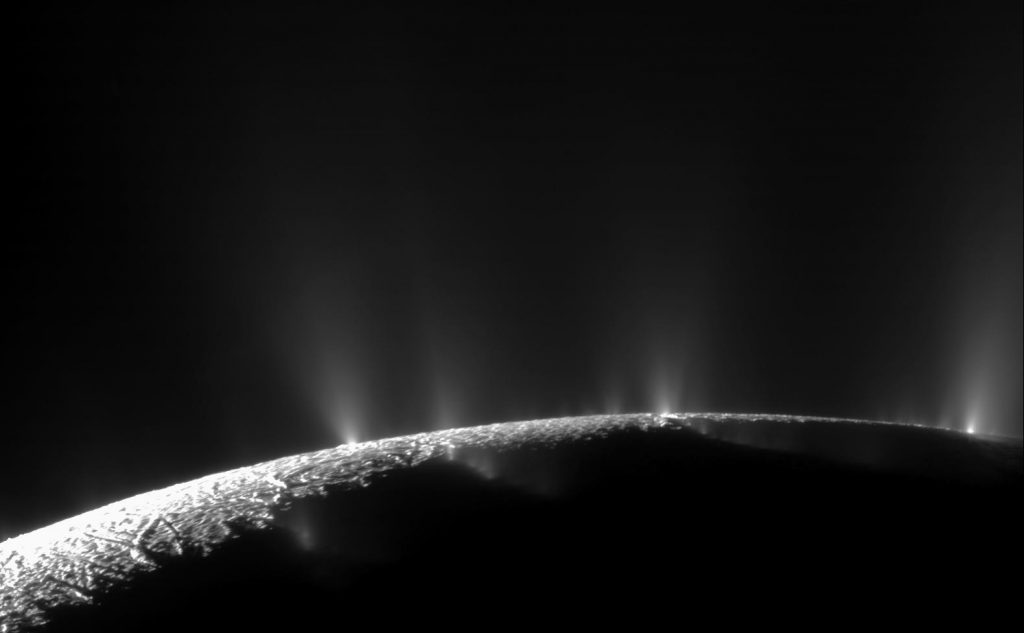
Will there ever be an event in space that rivals man’s landing on the moon?
Yes. I think it will be detecting signatures of life beyond Earth, whether in our own solar system or a planet around another star.
What do you think the next big discovery in space will be?
I think the next big discovery in space will be detecting an Earth-like planet around another star. It will make us imagine if another planet could support life as we know it.
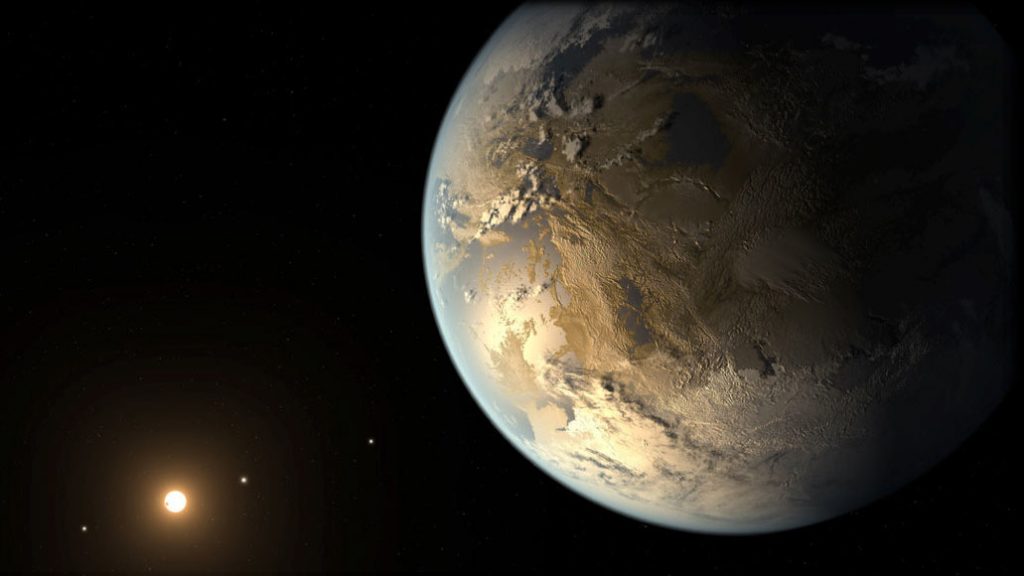
Manasvita Joshi
CAS research scientist and lecturer in astronomy
Will there ever by an event in space that rivals man’s landing on the moon?
The only event in space to rival the importance of the Apollo 11 mission would be human footprints on Mars. Even though it is quite early to say how soon we would be able to achieve this task given the immense challenges that are involved in sending humans to Mars, with the involvement of private agencies such as SpaceX, I am hopeful that someday human explorers will visit the last of the terrestrial world in our solar system.
What do you think the next big discovery in space will be?
The next big discovery in space could be that of detecting exomoons. The natural satellites of a planet, also known as moons, provide important insights on the formation, history, evolution, and habitability of their host planet. However, exomoons around giant planets have been identified as potential targets for life. A gas-giant planet in the habitable zone would not be ideal for hosting life, but an Earth-like exomoon was announced whose credibility has been questioned. Given enough time, high-quality data, and careful data analysis, such detections might become a reality in the near future.
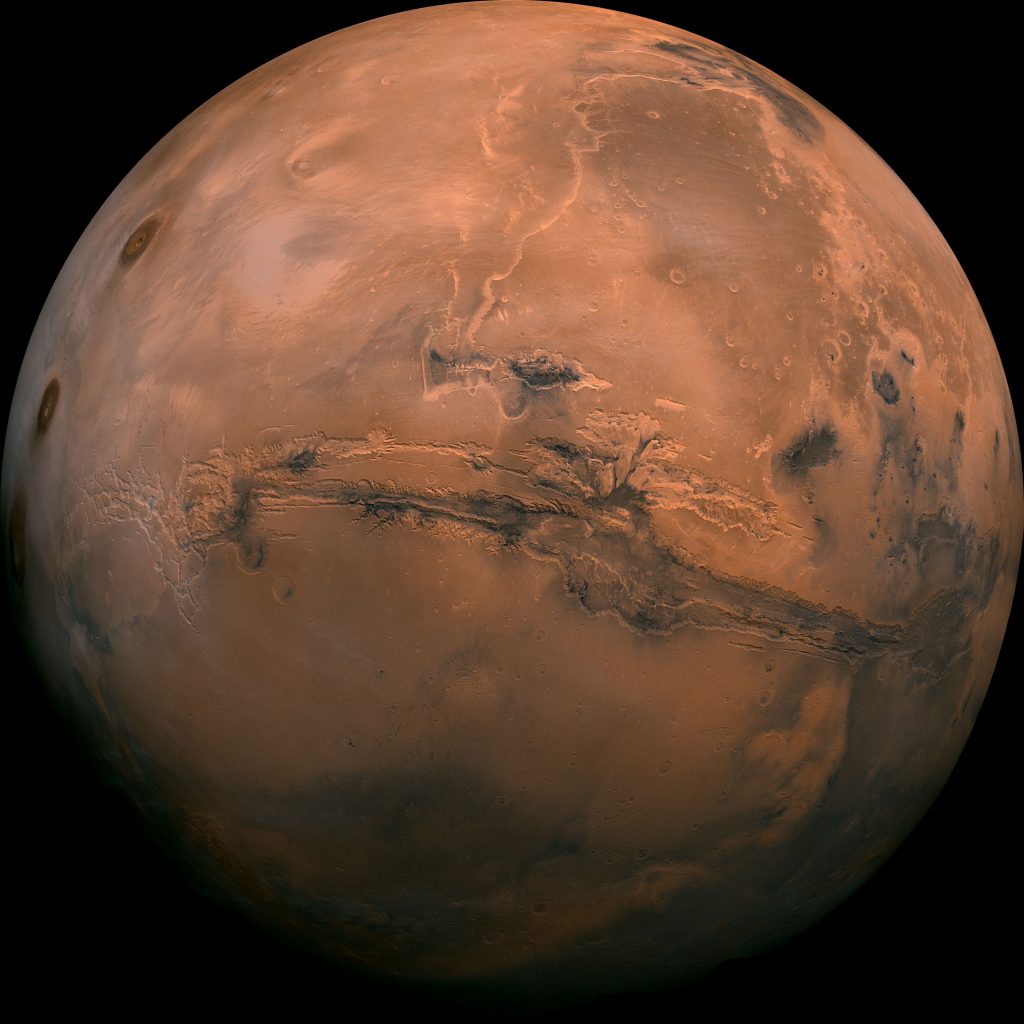
John T. Clarke
CAS professor of astronomy, director, BU Center for Space Physics
Will there ever be an event in space that rivals man’s landing on the moon?
Yes. The discovery of life in a recognizable form away from the Earth—whether it takes the form of bacteria under the surface on Mars or a more highly developed organism in a subsurface ocean on Europa or Enceladus—would fundamentally alter how we view our human place in the universe.
What do you think the next big discovery in space will be?
Impossible to predict. History has shown that in space science, events take place that cannot be anticipated, like the Comet Shoemaker-Levy collisions with Jupiter, or the more recent highly elongated extrasolar asteroid Oumuamua. Scientists have to be prepared to observe and understand events when they happen, in addition to conducting planned experiments.
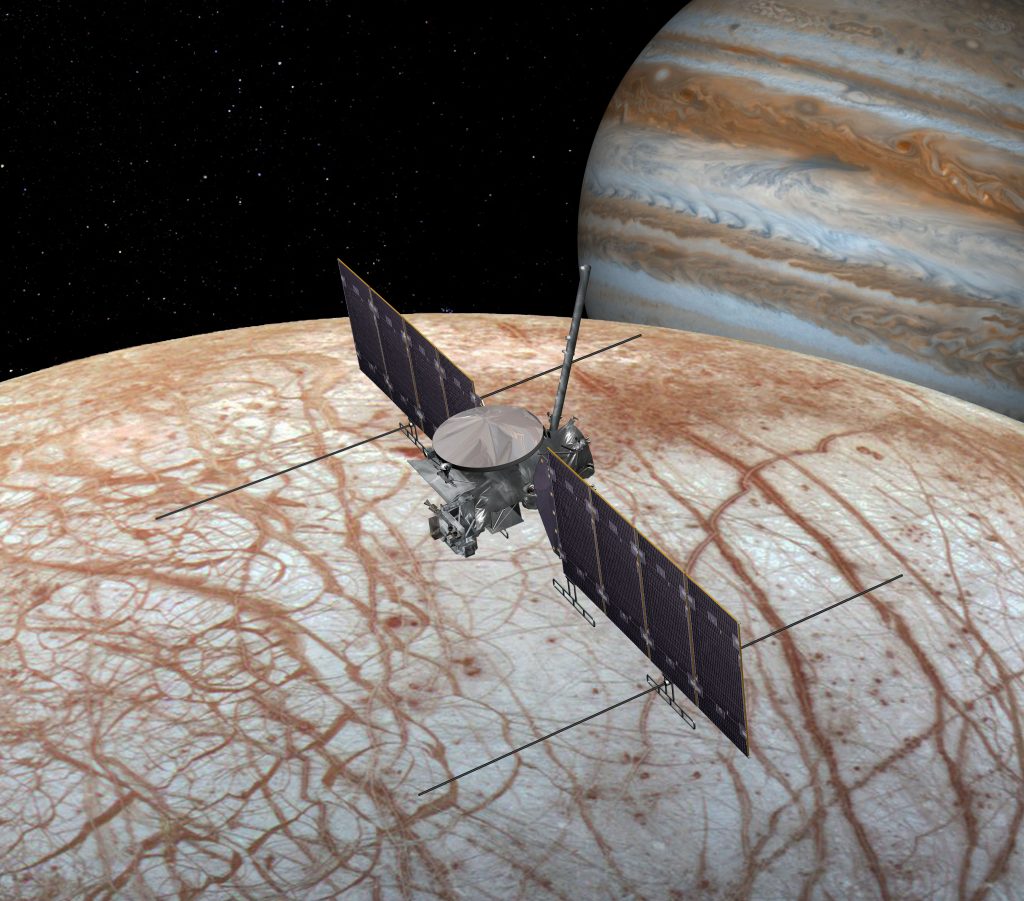
Merav Opher
CAS associate professor of astronomy
Will there ever be an event in space that rivals man’s landing on the moon?
Opher: Yes. An event in space that would rival the importance of the Apollo 11 mission would be to probe an Earth-like habitable planet that would transmit back information of the planet. Our nearest star where such conditions could exist is Alpha Centauri. Although we don’t currently have instrumentation capable of reaching that distance quickly, there are talks of sending an interstellar probe, a mission like the Voyager mission, with modern instrumentation that could quickly leave the solar system (or the heliosphere—the bubble created by the solar wind in the interstellar medium) to map the environment at distances 200 to 300 astronomical units (AU) from us and begin the journey of understanding the conditions around our heliosphere that made possible the conditions for life on Earth that could make another planet habitable.
What do you think the next big discovery in space will be?
To discover if there’s an Earth-like habitable planet.
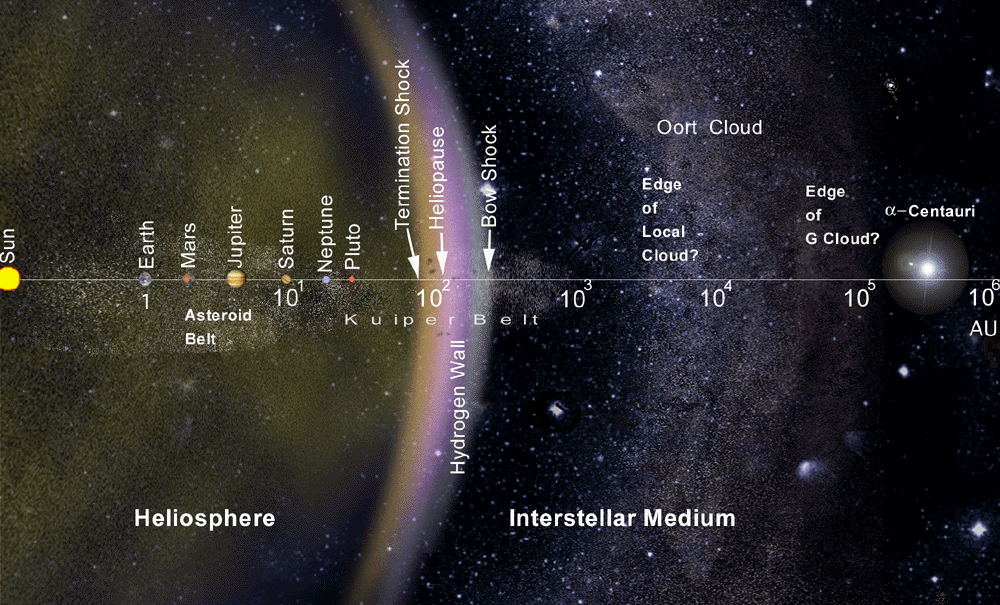
Farouk El-Baz
Retired director, BU’s Center for Remote Sensing, former CAS and ENG research professor, and a veteran of NASA’s Apollo lunar exploration program
What do you think the next big discovery in space will be?
The most fascinating discovery of the century would be the availability of drinkable water on Mars. We know for certain that ice forms on the polar regions during Martian winters, but polar winds would be very difficult for potential habitation sites. Thus, if we send people to live on the planet for months at a time, they would require much water. We have learned that Mars has experienced environmental conditions that were nearly identical to those that affected Earth’s deserts. Earth’s valleys in deserts overlie a great deal of water within porous deposits beneath the surface, where it was preserved as groundwater. Thus, we can assume that the same process could have resulted in preserving water beneath the Martian surface. Porous deposits could have resulted from meteorite bombardment, as well as from wind accumulation of fine-grained material. Thus, we would expect groundwater beneath the surface of Mars, very much like the case of the Earth. This might sound far-fetched at the present, but that was the case when we began searching for groundwater beneath the surface in sun-parched deserts of Egypt and Darfur. There, we were able to locate much groundwater that accumulated during rainy climates in the geological past.
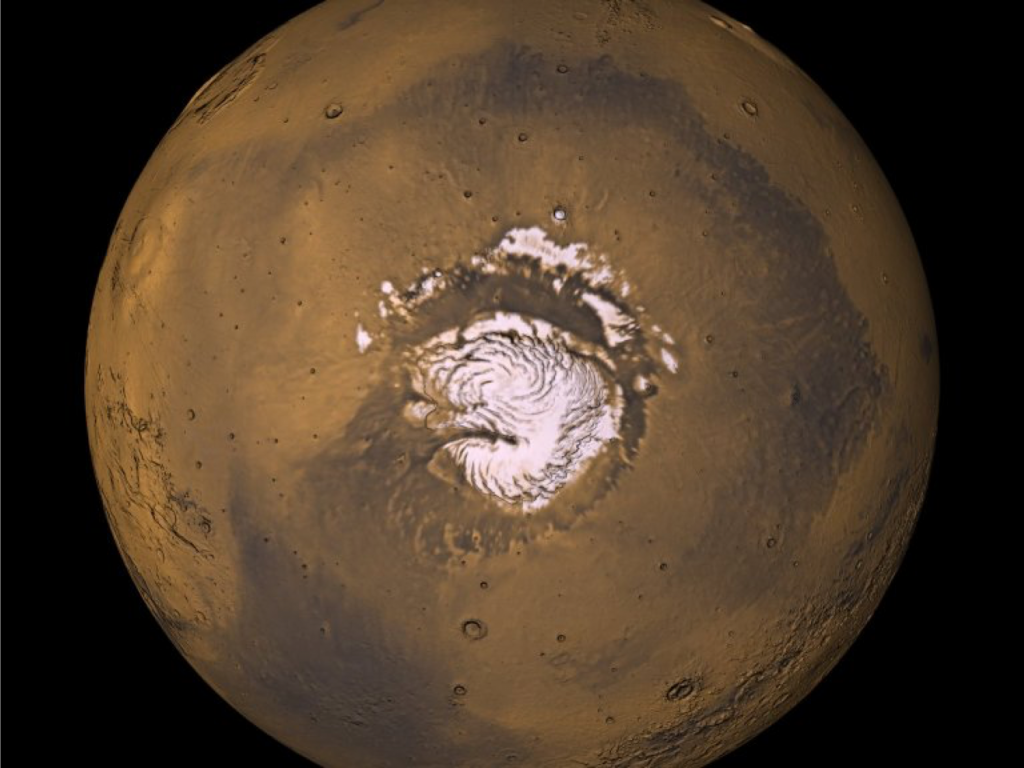
Michael Mendillo (GRS’68,’71)
CAS professor of astronomy
Will there ever by an event in space that rivals man’s landing on the moon?
Space science in general, and astronomy in particular, strive to help us understand our place in the physical universe. Science cannot tell us why the universe is the way it is, but it certainly can describe how it works. The most famous episode in this form of intellectual exploration is that famous transition away from the long-standing model of the Earth being at the center of the celestial system. Modern science started in the 17th century and Copernicus, Kepler, Galileo, and Newton are the heroes of that story. In the 20th century, Einstein, Lemaitre, and Hubble gave us new ways to “see” that we live in a universe defined by its galaxies—and that they are all moving away from each other. It is pretty neat that expanding our knowledge of the universe actually involved expansion by its major components. Then came the Apollo 11 mission. It taught us that humans ultimately have the pivotal role in exploration—but now it can be physically as well as intellectually. The next step will be humans on Mars.
What do you think the next big discovery in space will be?
Aside from astronauts in space, the science answers needed today deal with why dark matter and dark energy seem to exist, and what we might find out about the remarkable number of planets discovered orbiting stars in our galaxy. Finding a single instance of life (primitive or advanced) on an exoplanet would be the single greatest discovery of humankind.
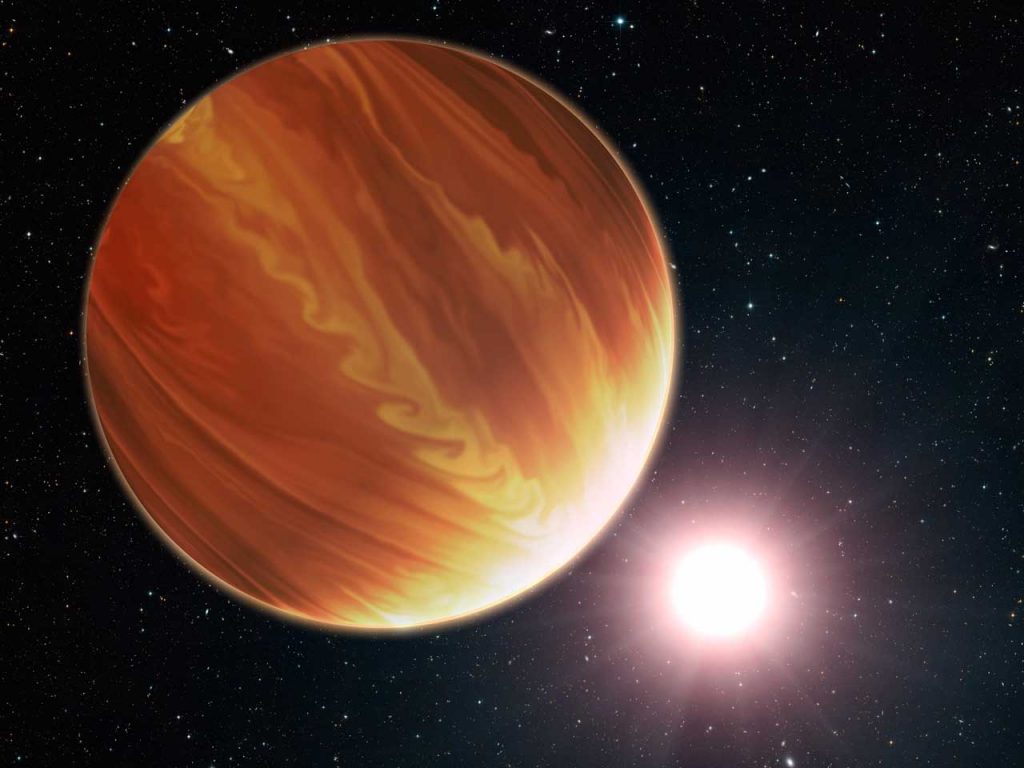
Dolon Bhattacharyya (GRS’16)
Research scientist, BU Center for Space Physics
Will there ever by an event in space that rivals man’s landing on the moon?
Yes, absolutely. That event would be the first landing of man on Mars. Such an event would mean that humans have been successful in executing an interplanetary journey to reach another planet. This would open doors for more ambitious human exploration of objects far beyond Earth in the future.
What do you think the next big discovery in space will be?
I believe the next big discovery in space will be the detection of microbial life in one of the underground oceans of Europa, Ganymede, or Enceladus. Life, as we know it, requires liquid water and minerals to evolve and thrive. There exists ample scientific evidence that the abovementioned bodies have the right conditions in their underground oceans to harbor life. Such a discovery would be monumental and would hugely influence the statistics on the probability of existence of life beyond our solar system.
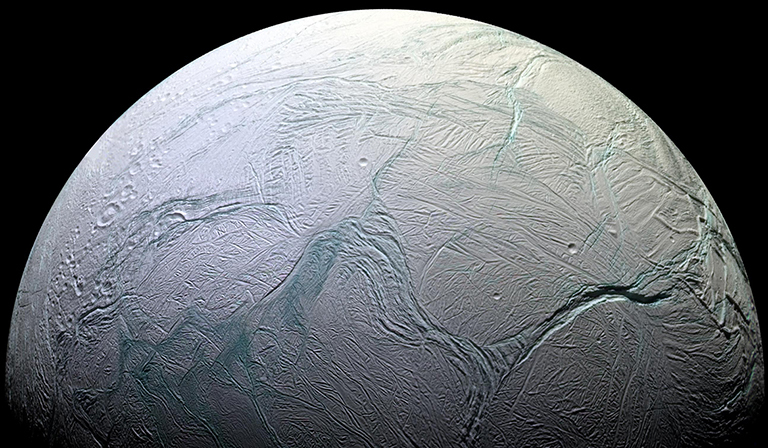




_Toys_Market_2019-2023-225x125.jpg)
